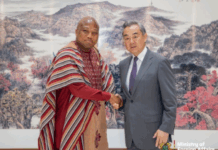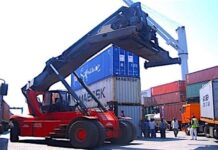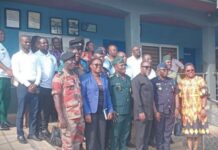Journalists in Accra and the Ashanti regional capital Kumasi has been trained on a smart device technology application to address challenges in transporting goods across the West Africa sub region.
The platform christened: “Chains of Human Intelligence towards Efficiency and Equity in Agro Food Trade along the Trans-Africa Highway,” (CHEETAH), is being piloted to tackle trade obstacles along the trade corridors within the sub-region.
The developers of CHEETAH are testing the innovation on an important trade corridor, Accra – Ghana to Ouagadougou-Burkina Faso.
The pilot project seeks to involve more than 100 stakeholders, including truck drivers from various transport associations in the West African Sub-region, as well as some graduate students of Kwame Nkrumah University of Science and Technology (KNUST).
The objective of the pilot phase is to assess whether CHEETAH can inform effective post-harvest management decisions and policies by crowdsourcing post-harvest intelligence through human interactions and infrastructural status.
Based on this backdrop, journalists who are also stakeholders are being trained on the technology to equip them with skills when reporting on trade barrier issues.
Mr Valentijn Venus, the Executive Director of Ujuizi Laboratories Netherlands noted that the training aims to training journalists to specialize in trade barrier reporting
He indicated that, the technology gathers improved information on road pavement quality and post-harvest losses to help drive behavourial policy and infrastructure improvement.
The platform also provides on the ground intelligence to decrease unforeseen expenditure for traders and ensure transparent and accountability in the system.
Mr Valentijn Venus revealed that West Africa, post-harvest losses were aggravated by illegal toll stops and police controls and these prolonged transport journeys ad put profit margins under further pressures.
All this information, he added will help journalists project the difficulties drivers face while transporting goods from Ghana to the ECOWAS sub-region.
Some of the participants in an interview they have learnt a lot to enrich their reportage on trade barriers.
The CHEETAH project is supported by the Dutch Ministry of Foreign Affairs, supported by Essoko Ghana, the KNUST Department of Horticulture and the International Fertilizer Development Centre.






